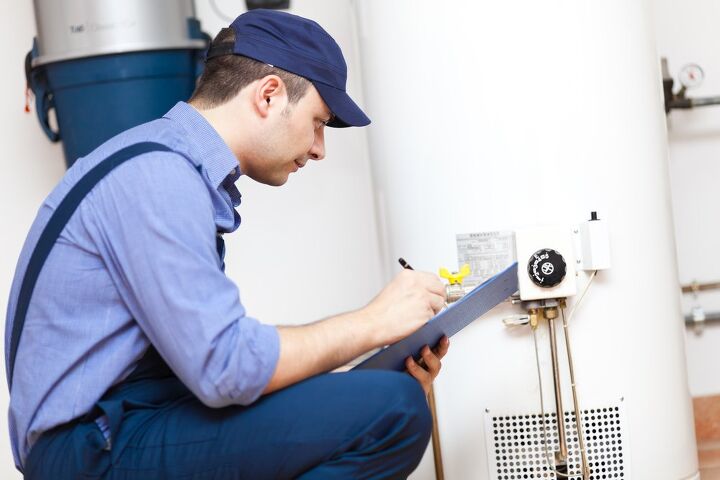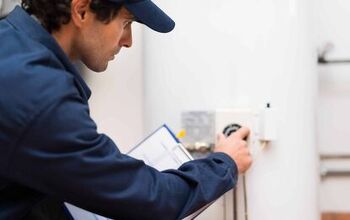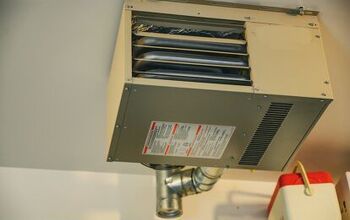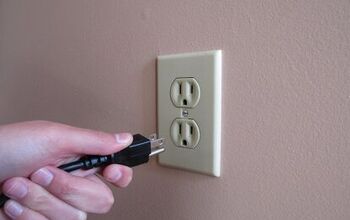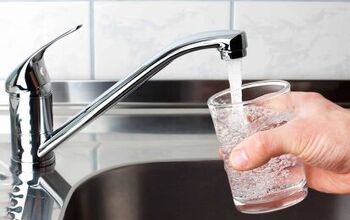Cost to Move Water Heater to Garage

Using a water heater is a necessity for many of us who need to take early morning showers. We find room for it in our home because we consider it an essential appliance. Still, you may find that the water heater is constantly getting in the way and so you want to move it.
Moving the water heater is an option and the garage could be the ideal spot for it on your property. Unfortunately, the water heater is not a typical appliance so moving it from one spot to another won’t be easy. If you’re planning on moving your water heater to the garage, you can expect that to be a major expense.
You will need to pay $2.30 for each new linear foot of piping that’s required to facilitate the water heater’s move. Add $500 to your final bill because you will need a plumber to install the new piping. Homeowners will also have to pay an additional expense because they need to get the water heater reinstalled in their garage.
Are you interested in moving your water heater to the garage? It’s a move you can pull off, but it will cost you. Learn more about how costly that move can be by continuing with the rest of this article.
Do You Need Water Heater Installation or Replacement?
Get free, zero-commitment quotes from pro contractors near you.

Cost of New Piping by Type
| Type of Pipe | Cost of Pipe per Linear Foot |
| ABS | $2 |
| CPVC | $1 |
| Copper | $4 |
| PEX | $2 |
If you’re planning to move your water heater to the garage, you will likely need to install some new piping. You can expect to pay $2.30 for each new linear foot of piping you need to get installed.
Unsurprisingly, the type of pipe you choose to form the new connection is going to affect pricing greatly. Chlorinated Polyvinylchloride (CPVC) piping is the most affordable option at $1 per linear foot.
CPVC pipes are modified versions of PVC pipes. They are well suited to be used for water heater connections because they can handle extreme temperatures.
Acrylonitrile butadiene styrene (ABS) pipes are easy to install so plumbers like working with them. At $2 per linear foot, they are also pretty affordable. Your plumber is unlikely to suggest using them though since the other options handle hot temperatures better.
Copper is probably the best piping option because of its durability and ability to resist corrosion. Given its $4 per linear foot price tag, though, it’s easy to understand why you might consider other options instead.
Cross-linked polyethylene (PEX) pipes are capable of handling the varied temperatures and pressure levels of your water supply. PEX pipes are also reasonably priced at $2 per linear foot.
Cost of New Piping by Length Required
After determining which type of pipe you want to use, you can now focus on other important matters. More specifically, you need to know how much additional piping will be needed for this project.
You can enlist the help of a plumber when you’re trying to figure out how much piping will be required. Hopefully, your garage is close enough to your home that you’ll be able to cut down on the piping-related expenses somewhat.
Apart from the distance from your garage to your home, you also have to consider the elevation. Many homes have bathrooms on the second floor so hot water needs to reach those places as well.
Installing new piping for elevated connections often means having to open up the wall. That’s the only way to get the new pipes where they need to be. You’ll end up saddled with more expenses because of that.
Labor Cost to Install New Piping
Now that you’ve bought enough pipes to connect the relocated water heater to your home, you can now get them installed. The cost of installation will be a significant expense for you as well. Plumbers will charge $500 to install new piping connections.
It is worth noting here that $500 is simply the average cost of installing new piping for this kind of project. That price point can change depending on a variety of factors.
As we noted earlier, the plumber will charge more if you need connections made to your second floor. They will also ask for more money if your garage is located far from the rest of your home.
Another factor to consider here is the current layout of your plumbing. Laying down the pipes needed for your relocated water heater can be tougher because of existing water lines.
Don’t disregard the current condition of your garage when trying to figure out how much this project might cost. The plumber you’re hiring may need to make preparations before they can start installing the new piping in your garage. You will have to pay more for that additional labor as well.
Cost to Install the Water Heater
| Water Heater Type | Cost to Install |
| Standard Water Heater | $400 |
| Tankless Water Heater | $1,000 |
| Hybrid Water Heater | $450 |
Moving the water heater to your garage means you need to get it properly installed again. The cost of reinstalling the water heater will vary based on the model you have. Standard water heaters that use tanks are the cheapest to install at $400.
Standard, tank-style water heaters are the easiest to install and that’s why the labor cost is that low. The main issue with standard water heaters is that they take up a lot of space. You may have trouble accommodating them if your garage is on the smaller side.
Homeowners typically pay $1,000 if they want a tankless water heater installed. The installation cost increases significantly because tankless water heaters need more connections to work properly. They are complicated installations even for experienced plumbers.
Still, you may not have much of a choice on that front. If you have a small garage, you may only be able to place a tankless heater in there.
Lastly, you can also choose to install a hybrid water heater for $450. Hybrid water heaters are the most expensive models, but they make up for that in the long run. They do a great job of maximizing the fuel that they’re using.
Do note however that you also need to free up space if you’re moving a hybrid water heater to your garage. Since they still use tanks, they cannot be squeezed into small spaces.
Cost Factors of Moving the Water Heater
We’ve already outlined some of the major factors that affect how much moving a water heater to your garage will cost. However, there are still supplemental cost factors worth discussing and we’ve detailed them below.
Garage Foundation
Installing the required piping inside your garage may not be that easy. If your garage floor is covered by a material such as concrete, getting the pipes into place will take more work. The plumber may need to bring in some assistance to break through the garage floor.
Garage Insulation and Ventilation
Consider the insulation and ventilation before you move your water heater to your garage. The plumber may need to move those elements around before they can start installing the water heater and the pipes.
You should also consider adding insulation and ventilation to your garage if they aren’t present there already. Those elements can help your water heater work more effectively.
Location of Existing Lines
You need to be mindful of water lines and electricity lines before installing new pipes. Pinpoint where they are located so your plumber can safely avoid them during installation.
Get in touch with the utility providers if you’re having trouble locating those supply lines. They can provide the guidance you need.
Property Layout
Finally, the layout of your property will also affect how much moving the water heater will cost. The plumber will charge more if they have to carry the water heater far away from its original location.
The quirks of your property may also make installing the pipes a trickier task. The plumber will ask for a larger payment if that’s the case.
Do You Need Water Heater Installation or Replacement?
Get free, zero-commitment quotes from pro contractors near you.

Related Questions
How Hard Is It to Relocate a Water Heater?
Moving a water heater to any new location is not a task to be taken lightly. You have to be extra cautious when handling it or else you could harm yourself. You may also deal lasting damage to the water heater if you aren’t careful.Hiring a professional to help you move your water heater is a necessity. The labor cost is worth it if it saves you from purchasing a new water heater.
Where Should the Water Heater Be Placed?
Consult with your local regulations and building codes before installing water. They will usually indicate where a water heater should be installed. Make sure you abide by those placement guidelines so you can avoid being hit with fines.The garage is generally considered a suitable location for a water heater as long as it’s standing on level ground. The ground must be level or else the water heater may not function properly.
How Long Do Water Heaters Last?
Water heaters are capable of remaining in good working condition for about 12 years. Even so, you should start closely monitoring your water heater before then. Water heaters can start running into problems by the 8-year mark so start checking on them more often at that age.

Gary Evans is passionate about home improvement. He loves finding out how to make improvements in the easiest, most practical, and most affordable ways. Upgrading his home kitchen is one of his ongoing hobbies. Gary is also a long-time content creator and enjoys spending his free time tending to his hydroponic vegetable garden.
More by Gary Evans



